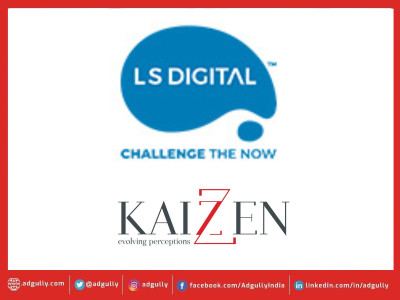Beyond Comm: The expanded skill sets required in the PR industry today
Authored by Vikas Dua, Director – HR and Talent- Weber Shandwick, India
The realm of public relations (PR) has undergone a remarkable transformation in recent years, ushering in a new era of communication strategies. The traditional approaches that once reigned supreme have given way to innovative and more dynamic techniques, leading to a corresponding expansion in the range of talent and skillsets required to meet the industry's growing demands.
With the advent of digital media and data-driven communications, PR has become more focused on crisis management and data analysis. As a result, the industry is now seeking professionals who can adeptly navigate this constantly evolving landscape. There used to be a time when technology, data, and communication were thought to exist in separate and distinct worlds, but now it's clear that bridging these disciplines is vital to the success of any PR campaign. Today, companies are looking for practitioners who can not only produce compelling content but also utilize cutting-edge technology to drive the narrative.
The PR industry requires talent that is proficient in digital marketing, data analytics, and crisis management, among other key areas. These individuals bring to the table a diverse set of skills, which allow them to work effectively across different platforms and channels. Companies are eager to find PR professionals who can think outside the box and adapt to new and innovative approaches to communications. Talent that can bring together the worlds of tech, data, and communication to drive success.
Experience in creating social media campaigns and a deep understanding of social media metrics is crucial for sustaining a successful career in the PR industry. Influencers and bloggers have also emerged as significant stakeholders in shaping consumer opinions, making it essential for professionals to learn how to engage with them effectively. It’s what we seek in our talent these days.
To drive successful campaigns, PR professionals must possess data analysis and measurement skills, enabling them to identify the key performance indicators (KPIs) for their campaigns. Furthermore, integrating AR/VR and other cutting-edge technology into strategies has led to the creation of captivating campaigns, contributing to the industry's significant growth.
We constantly seek professional who possess these skills and knowledge so companies can deliver high-quality services to their clients and remain competitive in the landscape.
Weber Shandwick is committed to staying ahead of industry trends by providing our employees with the training they need to succeed. Our monthly media training program is tailored to the needs of entry-level team members and focused on upskilling them in the digital landscape. We also nominate our staff for content workshops organized by the industry body PRCAI, specifically designed to develop an editorial mindset for mid and junior-level executives. These initiatives enable optimal communication efficiency within the industry and help our team stay at the forefront of PR innovation.
The PR industry has evolved beyond traditional practices to include CSR, ESG, employer branding, and social impact. These practices are now a crucial mandate for clients, demanding expertise, and efficient communication skills. However, there is a shortage of specialists in these areas, despite the growing demand for communicators and agencies with these skills. As a result, it's critical for PR professionals to stay up to date with these evolving areas to meet clients' needs and remain competitive in the industry.
To achieve this, PR professionals must have a comprehensive understanding of these practices and should be able to integrate them effectively into their communication strategies The gap between skillsets and practical understanding persists due to a lack of awareness, with limited certified professionals in the social sector. More training programs and education models are necessary to bridge this gap and meet the increasing demand for subject matter experts.
In modern times, social sector work is no longer viewed as a philanthropic pursuit, but an important profession and mandate in big companies. While there are over 1000 training courses available in India, only a few top colleges are getting student attention. Online learning platforms offer 20+ social work courses, but their effectiveness is still a matter of debate. As CSR and ESG practices become more important mandates, there is a constant need to build awareness about available courses, and the fact that these can be pursued as careers. Colleges should incorporate social work courses to emphasize the importance of these practices. I think from a hiring standpoint- a candidates' training, knowledge, and passion for achieving goals, and contributing to the society, should be emphasized over past projects worked on.
Communication organizations must prioritize the continuous development of their employees by providing them with necessary training programs. Such programs enable PR professionals to enhance their skills, broaden their perspectives, and gain a better understanding of various domains. In today's highly competitive industry, creative thinking and innovation have become critical components of success. To promote this culture of creativity, we at Weber Shandwick conduct an annual internal workshop where we discuss some of the most amazing campaigns showcased at the Cannes Festival. This encourages employees to analyze current and future trends and fosters a culture of idea-sharing among them.
Such training sessions can stimulate innovative thinking, improve performance, and inspire employees to take risks that promote cultural conversations. By doing so, PR professionals can effectively shape their campaign narratives and achieve greater success for their clients. Communication organizations must embrace the importance of training sessions and other developmental opportunities as part of their overall strategy to retain top talent and stay ahead of the competition.
The PR industry is constantly evolving, creating a need for skills upgrading and training programs. Amidst this, it's important not to forget the most important aspect of the industry: people. Working with diverse generations requires ongoing upgrading, which can result in chaos. To calm this chaos, it's important to focus on a people-centric approach. At Weber Shandwick, we create a comfortable environment through a flexible approach that allows everyone to work at their own pace, maintaining a healthy work-life balance. This motivates employees to focus on delivering quality work and provides them with the freedom to be creative, curious, and courageous.
In conclusion, the world of comms that existed in isolation, has now fused to turn HR policies into employer branding pieces, and product development into tech driven campaigns. This revolution underscores the need for the right skills, training programs, and approach to enable the PR industry to thrive and evolve in the years to come, and future communications practitioners need to equip themselves with the right skillsets, beyond just being good communicators/writers.


















Share
Facebook
YouTube
Tweet
Twitter
LinkedIn